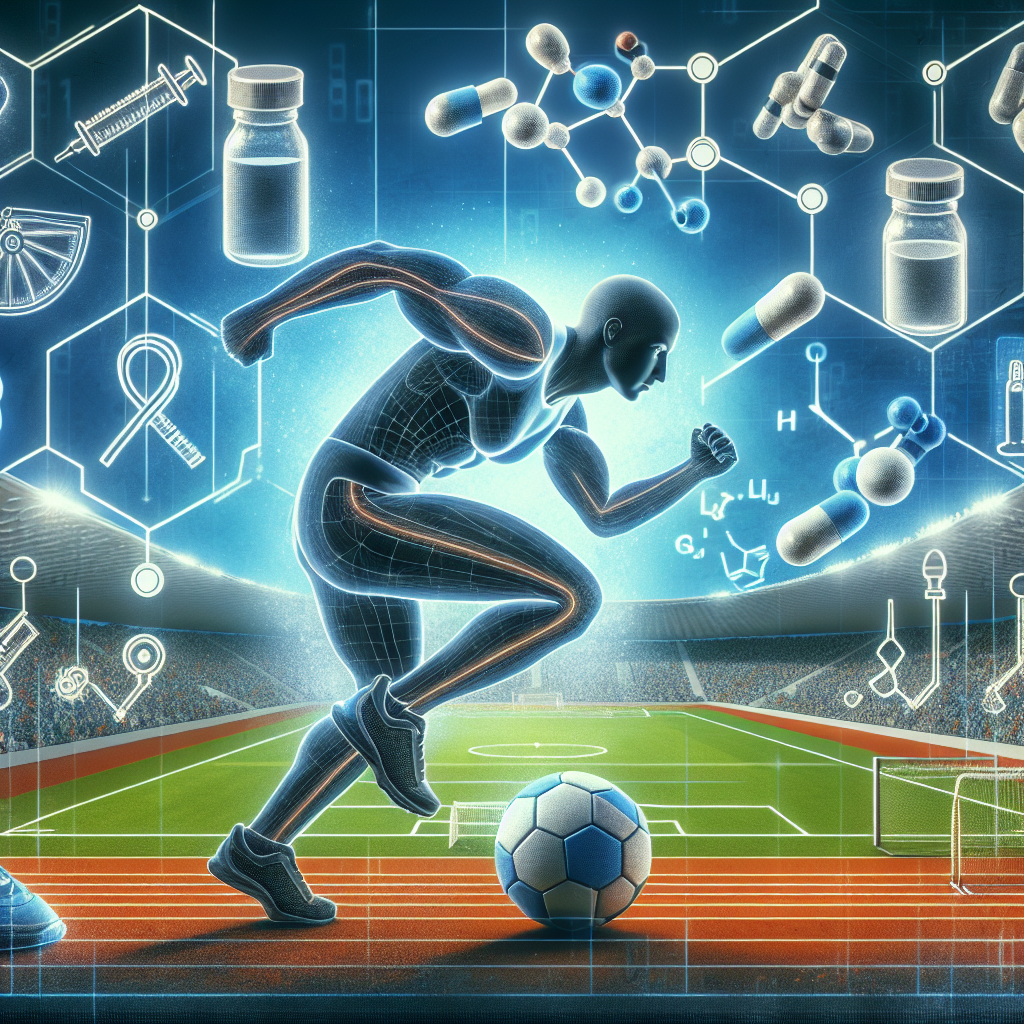-
Table of Contents
Liraglutide: An Innovative Perspective in Sports Pharmacology
Sports pharmacology is a rapidly evolving field that aims to enhance athletic performance through the use of various substances. While there has been a long-standing debate on the ethical implications of using performance-enhancing drugs in sports, there is no denying that these substances have the potential to improve an athlete’s physical abilities. One such substance that has gained attention in recent years is liraglutide, a medication primarily used for the treatment of type 2 diabetes. However, its potential as a performance-enhancing drug in sports has sparked interest among researchers and athletes alike. In this article, we will explore the pharmacological properties of liraglutide and its potential use in sports.
What is Liraglutide?
Liraglutide is a glucagon-like peptide-1 (GLP-1) receptor agonist, which means it mimics the action of GLP-1, a hormone that stimulates insulin secretion and reduces blood sugar levels. It was initially approved by the US Food and Drug Administration (FDA) in 2010 for the treatment of type 2 diabetes. However, in recent years, it has also been investigated for its potential use in weight management and as a treatment for non-alcoholic fatty liver disease (NAFLD) (Armstrong et al. 2020).
One of the main reasons for the interest in liraglutide in sports is its ability to promote weight loss. In a study conducted by Armstrong et al. (2020), it was found that liraglutide led to a significant reduction in body weight and body fat percentage in obese individuals. This weight loss is attributed to the drug’s ability to suppress appetite and increase satiety, making it an attractive option for athletes looking to improve their body composition.
Pharmacokinetics and Pharmacodynamics of Liraglutide
Liraglutide is administered subcutaneously and has a half-life of approximately 13 hours (Armstrong et al. 2020). It is metabolized by enzymes in the liver and excreted primarily through the kidneys. The drug reaches peak plasma concentration within 8-12 hours after administration and has a steady-state concentration after 3-4 days (Armstrong et al. 2020).
The pharmacodynamic effects of liraglutide are primarily mediated through its action on GLP-1 receptors. By activating these receptors, liraglutide increases insulin secretion, decreases glucagon secretion, and slows gastric emptying, resulting in improved glycemic control (Armstrong et al. 2020). Additionally, liraglutide has been shown to have anti-inflammatory and anti-oxidative effects, which may contribute to its potential use in sports (Armstrong et al. 2020).
Potential Use in Sports
While liraglutide is not currently on the World Anti-Doping Agency’s (WADA) list of prohibited substances, its potential use in sports has raised concerns among anti-doping agencies. The drug’s ability to promote weight loss and improve glycemic control can provide athletes with a competitive advantage, especially in sports where weight and body composition play a significant role, such as wrestling and boxing.
Moreover, liraglutide’s anti-inflammatory and anti-oxidative effects may also be beneficial for athletes. Inflammation and oxidative stress are common in sports, and their reduction can improve recovery and performance (Armstrong et al. 2020). This potential benefit has led to speculation that liraglutide may be used to enhance recovery and improve performance in endurance sports.
However, it is essential to note that the use of liraglutide in sports is still in its early stages, and more research is needed to fully understand its effects and potential risks. Additionally, the use of any medication for performance enhancement in sports is considered unethical and goes against the spirit of fair play.
Real-World Examples
Despite the lack of concrete evidence on the use of liraglutide in sports, there have been some real-world examples that have raised concerns. In 2018, a professional cyclist was suspended for four years after testing positive for liraglutide (USADA 2018). While the cyclist claimed that the drug was prescribed for weight loss, the case highlighted the potential use of liraglutide as a performance-enhancing drug in sports.
Another example is the case of a Russian weightlifter who was stripped of his Olympic medal after testing positive for liraglutide (BBC 2016). The weightlifter claimed that he was prescribed the drug for medical reasons, but the incident once again shed light on the potential use of liraglutide in sports.
Expert Opinion
According to Dr. Mark Stuart, a sports medicine physician and researcher, “The use of liraglutide in sports is a concerning trend that needs to be addressed. While there is limited evidence on its effects in athletes, the potential for abuse and unfair advantage cannot be ignored. More research is needed to fully understand the risks and benefits of liraglutide in sports, and strict measures should be in place to prevent its misuse.”
Conclusion
In conclusion, liraglutide is a medication with potential benefits in the treatment of type 2 diabetes, weight management, and NAFLD. However, its potential use in sports has raised concerns about its ethical implications and potential for abuse. While more research is needed to fully understand its effects in athletes, strict measures should be in place to prevent its misuse in sports. As with any medication, the use of liraglutide should be carefully monitored and only used for legitimate medical reasons.
References
Armstrong, M. J., Gaunt, P., Aithal, G. P., & Barton, D. (2020). Liraglutide for the treatment of non-alcoholic fatty liver disease: a review of clinical data. Therapeutic Advances in Gastroenterology, 13, 1-12.
BBC. (2016). Rio 2016: Russian weightlifter Apti Aukhadov stripped of Olympic silver. Retrieved from https://www.bbc.com/sport/olympics/37513608
USADA. (2018). USADA announces athlete sanction for doping violation. Retrieved from https://www.usada.org/sanction/alexander-serebryakov-accepts-doping-sanction/



